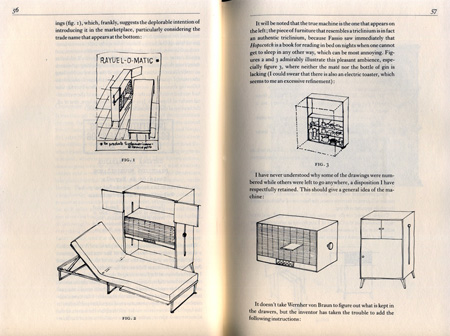“210 West 14th Street, New York City 6 Feb. 1950
My dear Carrouges,
Long after your letter I received the text, which I’ve read over several times.
It is true I am indebted to Raymond Roussel for having enabled me, from 1912 on, to think of something else instead of retinal painting (André Breton will enlighten you as to this term, because we have discussed it together), but I must declare that I have not read In the Penal Colony, and only read the Metamorphosis a number of years ago.
Just to let you know the circumstantial events which led me to the Mariée.
So I was astonished at the parallelism which you have so clearly established.
The conclusions you have come to in the sphere of ‘inner significance’ interest me deeply even though I do not subscribe to them (except as far as the glass is concerned).
My intentions as a painter, which have nothing to do with the deep result, of which I cannot be conscious, were aimed at the problems of ‘aesthetic validity’ obtained principally through the abandonment of visual phenomena, both from the retinal and the anecdotal point of view.
As for the rest, I can tell you that the introduction of a ground theme explaining or provoking certain ‘acts’ of the Mariée and the bachelors, never came into my mind – but it is likely that my ancestors made me ‘speak’, like them, of what my grandchildren will also say.
Celibately yours, Marcel Duchamp”
(Quoted on p. 49 of Le macchine celibi/The Bachelor Machines, ed. Jean Clair & Harald Szeemann, following the contribution by Michel Carrouges. This letter appears to have been translated from French to Italian before being put into English.)
